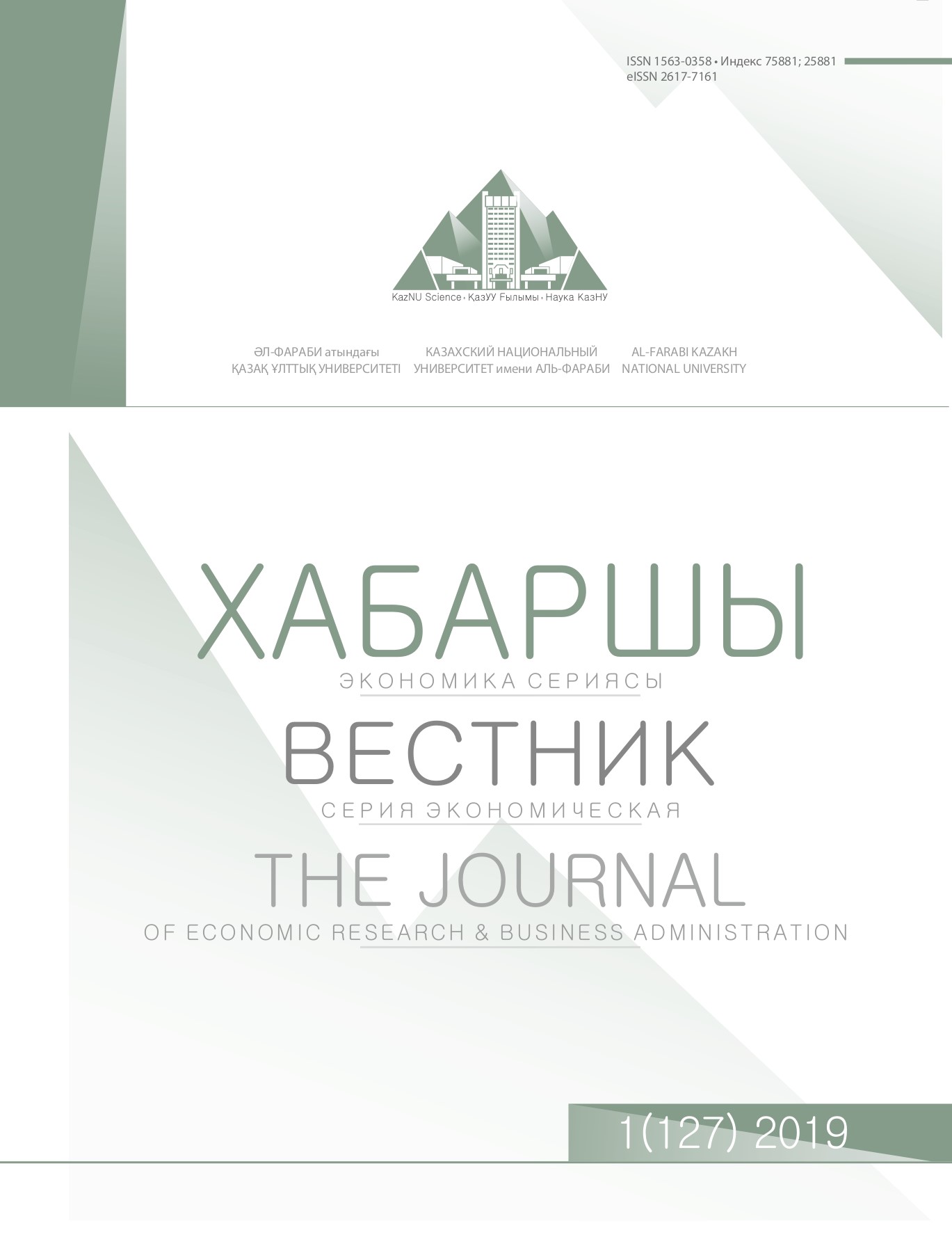Комплексная методология оценки человеческого капитала и проблемы его оценки
DOI:
https://doi.org/10.26577/be.2019.v127.i1.25Аннотация
В статье рассматриваются способы оценки человеческого капитала. В последние десятилетия
актуальность проблем, связанных с оценкой человеческого капитала и его составляющих, не только
не угасла, но и возросла по мере роста количества компаний. Резко возрос интерес экономической
науки к человеческим созидательным способностям, к путям их становления и развития. Вопросы
оценки человеческого капитала вызывают интерес ввиду сложности и многогранности данной
категории, а также её значения для обеспечения эффективности функционирования экономики.
Учитывая нематериальную сущность человеческого капитала, проявляющегося в форме знаний,
способностей, рабочих и управленческих навыков, а также его непрерывное накопление и связь
с конкретными работниками, следует отметить, что конкретный набор критериев менее важен,
чем процесс измерения и использование собранной информации. Системы оценки человеческого
капитала по определенным количественным критериям основываются на стоимостных и
натуральных подходах к его определению. Методологические подходы к экономическому
определению человеческого капитала, основанные на различных моделях, развивают идеи,
дающие новые, более приближенные к реальности варианты оценки человеческого капитала.
Формирование и развитие человеческого капитала происходит с непосредственным участием
семьи, государства, предприятий и различных общественных фондов. В настоящее время, когда
работник организации должен постоянно проявлять активность в совершенствовании своих
способностей, необходимо учитывать тот факт, что обучение происходит в течение всей жизни.













